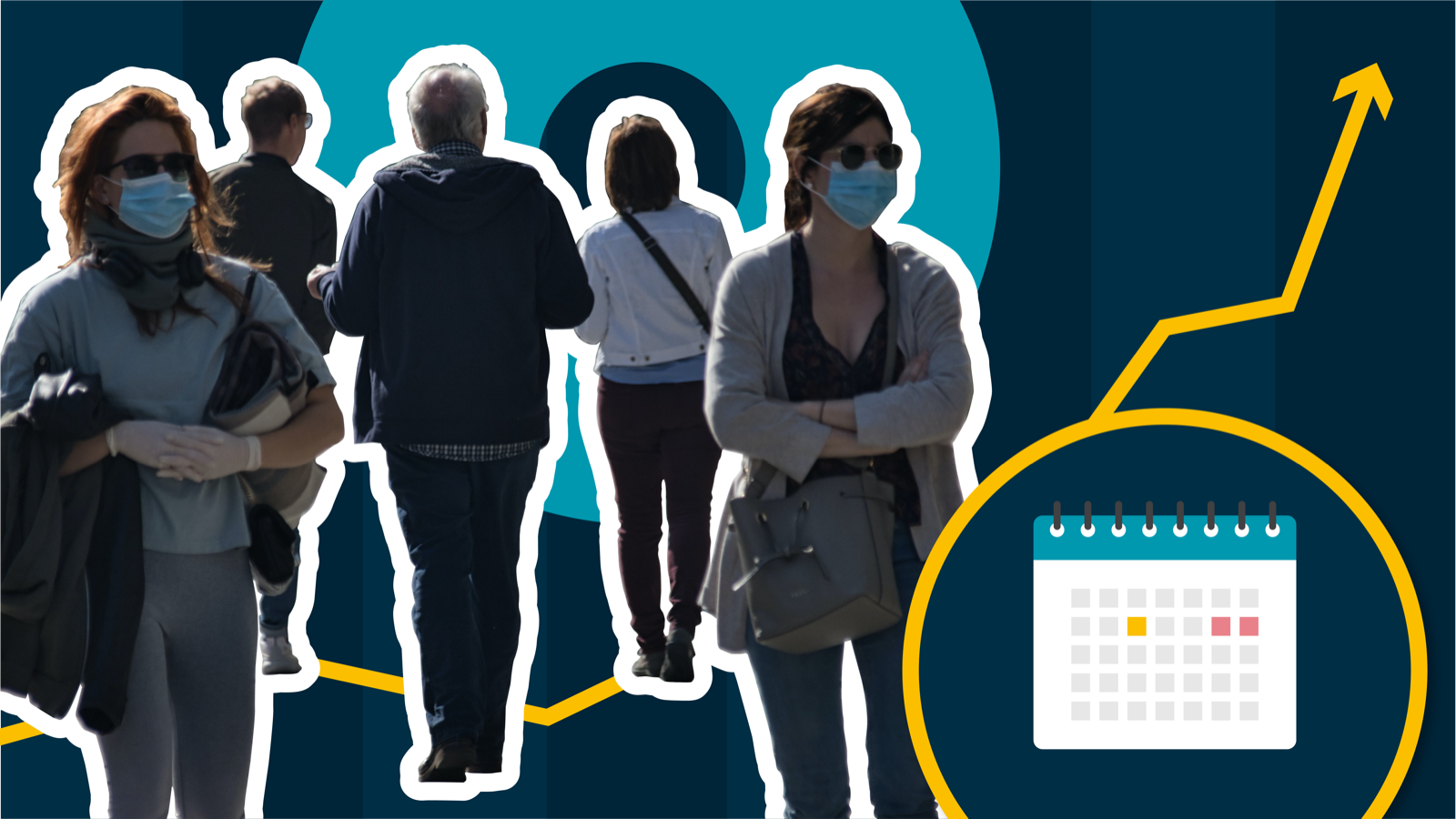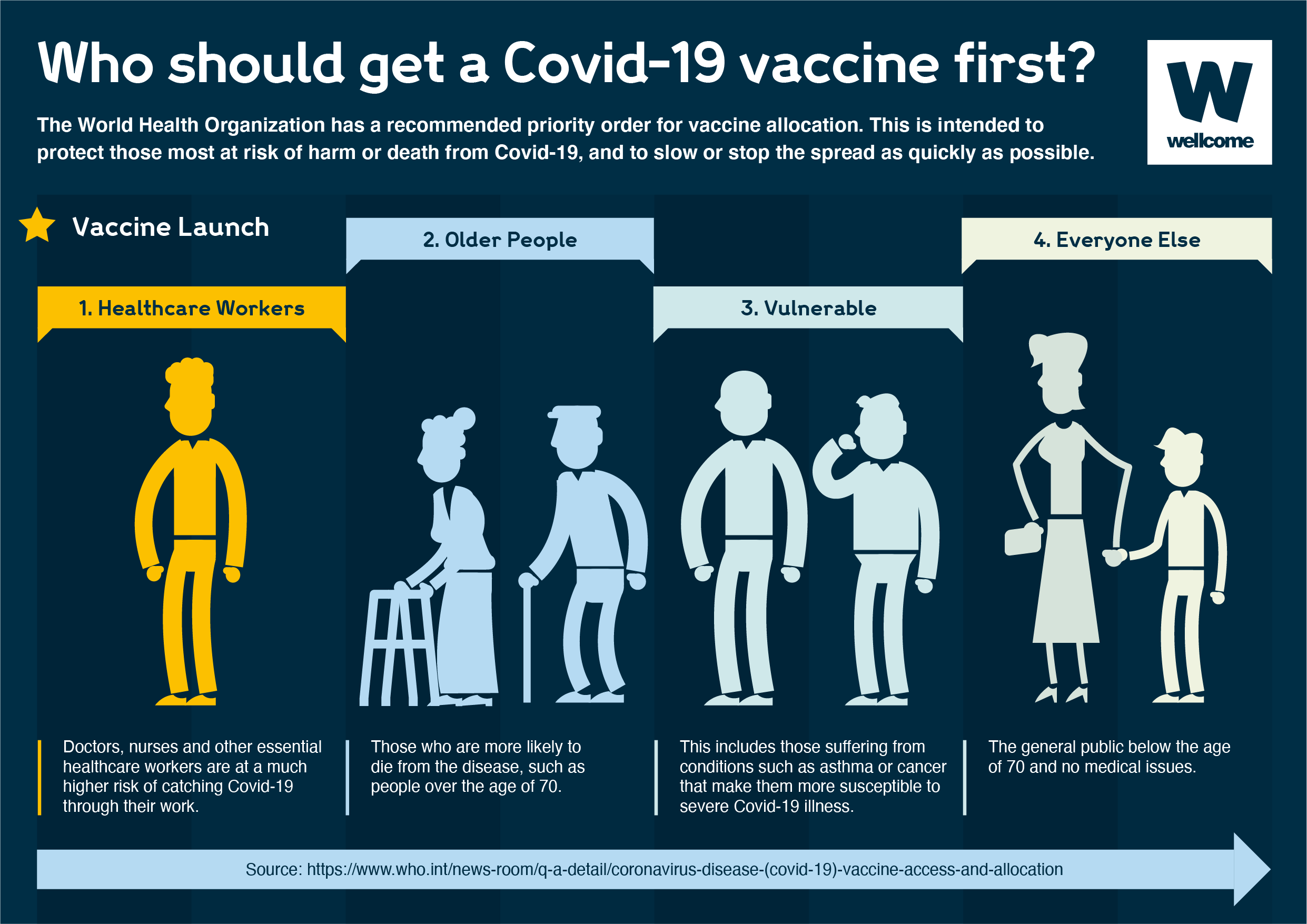When will the world be vaccinated against Covid-19?
With the first Covid-19 vaccines in short supply, how do governments decide who gets a vaccine first?


The global effort to find vaccines for Covid-19 has been incredibly successful, with multiple vaccines demonstrating high efficacy in clinical trials less than a year after the disease was discovered.
But it will take several years to manufacture and distribute enough vaccine doses to cover the almost eight billion people on earth.
Current estimates are that it will probably take well into 2023-24 for everyone who needs a vaccine to receive one.
So how should the global community prioritise the distribution of vaccines to give us the best chance of ending the pandemic and saving lives?
Decisions on how to prioritise vaccine doses have to balance the needs in each country, and the world.
Covid-19 vaccines will have the biggest impact on reducing strain on our health services, and reducing restrictions on other parts of society, if we use them to protect the most vulnerable first.
It’s a bit like if you had a family gathering of nine relatives, but you only have three doses of a vaccine now, you’re expecting three more in six months and three more next year. You’d have to decide who to vaccinate first, second and third.
You would probably give it to your grandparents first, because they would be most at risk of dying from Covid-19.
Once they’ve had it, you could see them with much less risk of hurting them.
But what if you had a sibling with asthma? Or parents working and travelling outside the home, who are more likely to bring an infection into the house from outside?
The World Health Organization have a recommended priority order starting with health care workers, the oldest (who are most at risk of serious illness and death) and those who are vulnerable due to other health conditions. Most countries are basing their response on this. As more vaccine doses become available, it will be possible to work down by age and vulnerability range. We may also need to review recommendations taking into account new virus variants and outbreaks that occur due to them.

Who should get a Covid-19 vaccination first? The World Health Organization has recommended a priority order for vaccine allocation.

It’s a tricky decision for which there is no way to make everyone happy, but most countries now have a clear plan in place.
It’s vital that we think globally as well as nationally when distributing the vaccine. Without worldwide measures, Covid-19 could remain active, and continue to spread.
A virus often mutates and creates new strains as it spreads. We have seen this play out in recent weeks, with two highly transmissible new strains being found in the UK and South Africa, increasing the number of patient cases. Although mutations will always occur, by limiting the presence of the virus worldwide we can reduce both the spread of all strains, and help reduce the risk of new strains forming that could further threaten the global population.
We need to quickly distribute the vaccines to the most vulnerable people, everywhere, and then to the remaining population. If some countries hoard the vaccines, doses will be less available to others.
COVAX is a global initiative that’s been designed to help create global vaccine access. Its aim is to provide 2 billion doses by the end of 2021, with the aim of providing coverage to at least 20% of the population in 195 countries across the world. COVAX needs support from governments around the world to provide critical funds to make sure its work can continue.
Economic recovery is predicted to take much longer if we don’t distribute the vaccines around the world, because we cannot have a healthy global economy if there is still a risk of Covid-19 spreading. By using the vaccines fairly, it’s estimated we could see economic benefits of up to $466 billion in the next five years.
Audio: Sir Jeremy Farrar and Anna Mouser (Vaccines Policy Lead, Wellcome) discuss how important global vaccination is in bringing the Covid-19 pandemic under control.
The vaccines are already rolling out in some countries, which will help to gain control of the pandemic as we reduce Covid-19 transmission and save lives. As this process continues, in communities around the world, we can look forward to regaining some level of normality.
Who gets the Covid-19 vaccine first? And who decides what order the rest will then get vaccinated? Ahead of the biggest vaccination program in human history, the decisions governments and health authorities need to consider is explained.